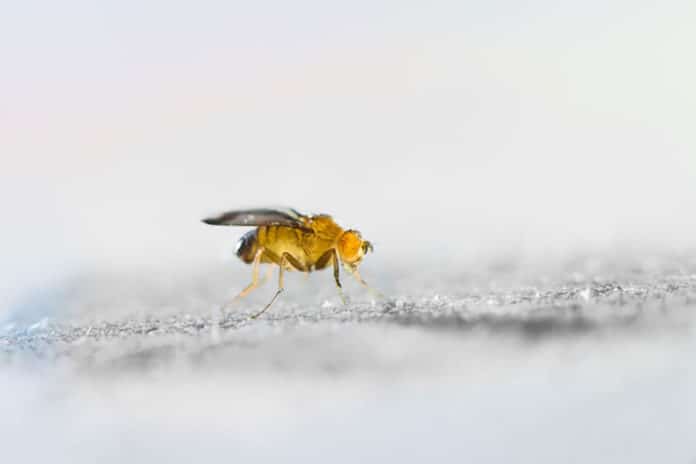It remains elusive whether aging could lead to reduced investment in sexual activities. Sexual behaviors are directed by the brain. In a new study, scientists wanted to determine what happens to sex differences in brain tissue when fruit flies age.
To do so, scientists at Linköping University investigated how gene expression to different degrees in young males and females changes over time. They found that age-related changes occur in both sexes, but the male brain becomes feminized to a larger extent than the female brain becomes masculinized.
Scientists also discovered that gene expression in male and female brains becomes more similar with age. Both sexes contribute to this pattern.
What’s more, when a gene is expressed more strongly in young females’ brains than in young men’s, its expression is decreased in older females and elevated in older males and vice versa for genes with higher expression in young males.
Antonino Malacrinò said, “The results also show that the changes are larger in males than in females.”
Since there is less correlation between investment in sexual features and reproductive success in females than in males, females age more slowly than males do, while a male fruit fly, to reproduce, must out-compete other males in quickly finding females and encouraging them to mate through an intricate and taxing dance performance, a female only needs to decide how much energy she has available for reproduction. Aging implies that reduced amounts of resources are available to invest in reproduction and other activities for both sexes. Still, stiff competition between males means the increased investment cost is greater for them than for females.
Urban Friberg, who has led the study and is a senior associate professor at the Department of Physics, Chemistry and Biology (IFM) at Linköping University, said, “If you keep investing as much as before in reproduction when you get old, you don’t have energy left for survival.”
The study results are reminiscent of those obtained by the group in a previous investigation. In that study, sex differences in gene expression were compared between male and female flies of high and low genetic quality. Like ageing reduces sex differences, the earlier study shows that reduced genetic rate makes gene expression more similar in male and female flies. Again, it was males that changed their gene expression more than females.
Journal Reference:
- Antonino Malacrinò, Martin I. Brengdahl et al. Ageing desexualizes the Drosophila brain transcriptome. Proceedings of the Royal Society B. DOI: 10.1098/rspb.2022.1115
